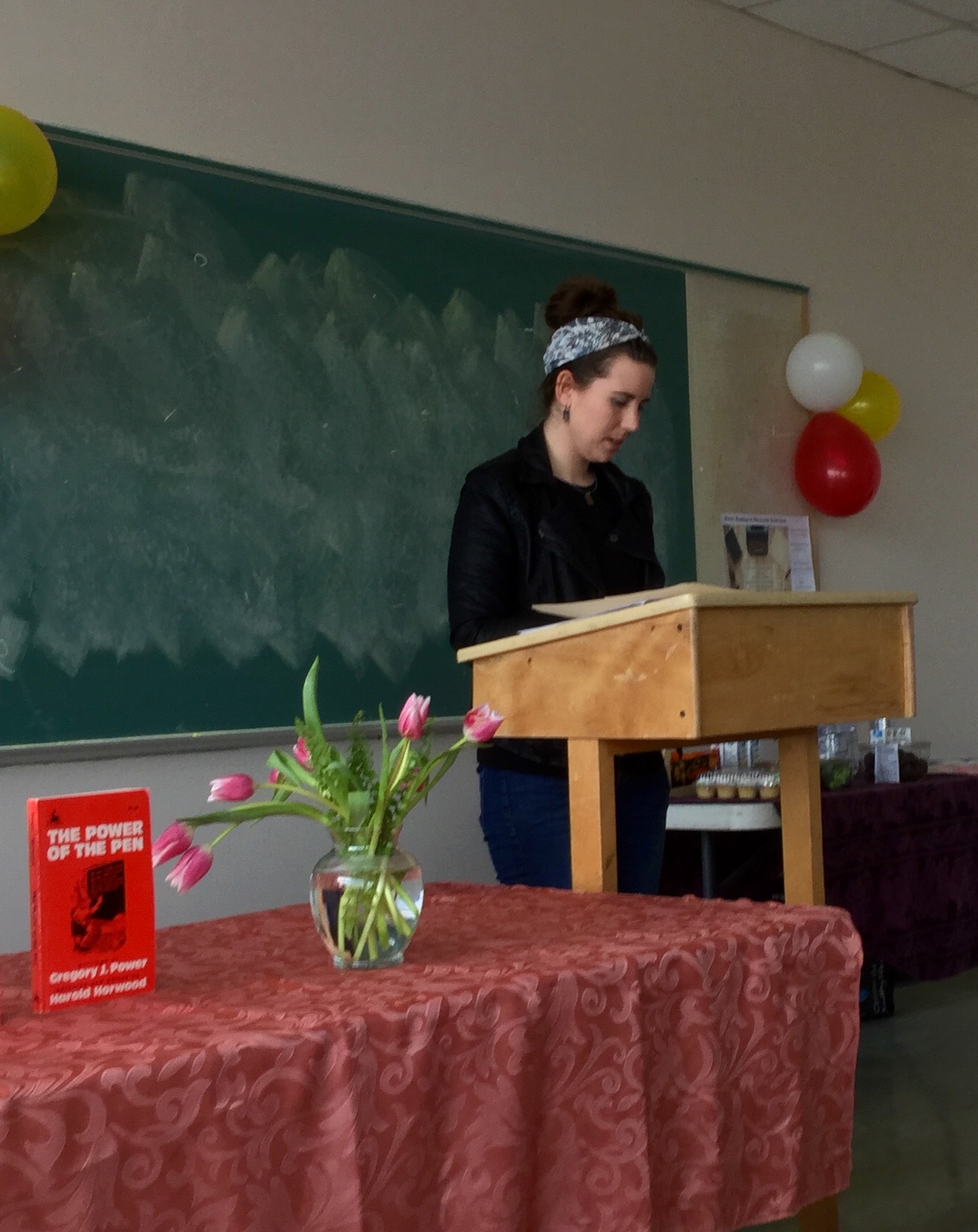It’s a little bit of a strange feeling to be gearing up for a new, full semester in May as opposed to our normal semester start times in September or in January, but that’s the life of a full-time graduate student!
I remember I had a professor in my undergraduate program, Dr. Andrea Schutz, who talked about the irrational, unnatural logic of starting major undertakings in the fall and winter months. We were reading Chaucer’s General Prologue, which begins in April, and she really underscored how that, and many other major works of literature throughout, symbolically begin in the spring. It’s natural for us to read into spring as a time for beginnings and potential, and literature reinforces spring as a symbolic time. However, the way our education system is structured, and many other institutions as well, is to begin in fall, when the natural world is winding down and we move into the contemplative season of winter. Now, in St. John’s, the last few signs of winter are fading away, and on our first day of classes this May, we were lucky to have temperatures in the 20s and an uninterrupted blue sky for the afternoon.
Last semester, I decided to drop a course and focus more deeply on the two courses that were the most relevant to my interests. In the coursework program, we need to take eight courses over three semesters. My original aim was to do three the first two semesters, and do an independent project and one class in the spring semester. However, what looks good on paper doesn’t always translate to the best practical application, and my department was more than willing to help me plan out a different schedule. The consequences of dropping that course are that I’ll stay on for one more semester in the fall, which is a decision I’m happy with, because it lets me stay in St. John’s a little longer and explore the area and the arts scene in more depth.
The local arts community here is incredibly strong, motivated, and active. Despite recent crippling budget cuts and controversial provincial financial decisions, the arts community here has rallied, protested, and drawn together to continue important creative projects. St. John’s reputation for having a resilient arts community was part of what drew me here, and I haven’t been disappointed. The community here has been very supportive, especially at Memorial. I had the wonderful opportunity to enter the Gregory J Power Poetry contest along with other members of my Creative Writing class, and was happy to win an honorable mention alongside some fantastically talented writers, some of whom were also in my Creative Writing class.
This semester is going to be a busy one, and it’s going to draw on all the time-management and project management skills I’ve been developing over the last two semesters, not to mention the necessary research, reading, and writing skills we need. I’m finishing up a GA project, as well as taking on a new teaching assistantship, and doing two courses, all while working part time to start to save for after graduation!
One of my courses, Posthumanism and the Gothic: Animals, Monsters, and Machines, is a semi-independent course with two other students, and Dr. Lokash has given us a lot of freedom and flexibility with how we structure meetings, communication, and research. My other course is Dr. Legge’s Aboriginal Matters: Myth, Medicine and Magic, and while it’s structured and rigorous like a graduate level course, it has some interesting non-traditional elements and opportunities for multi-modality that I’ve seen occur more frequently in experimental educations programs. While it’s certainly a graduate level reading load, it offers some unique creative reflections. I think that it’s nicely reflective of Memorial’s unique blending of creative, academic, and practical English courses. The program has turned out to be a surprisingly good fit for my varied interests, and I would encourage anyone else in the same position as me to consider how a year-long coursework program that allows much flexibility can help them refine their academic and career directions before committing to a thesis or major area of specialization.
We’ve talked a lot of meta-talk this past semester about specialization, about the academic climate and job market. We also talked about refining our positions on our approach to scholarship, not just in a class-by-class and essay-by-essay approach, but asking the bigger questions about our roles as academics and our relation to the public. In retrospect, the focus we took was probably the most important and formative experience of my academic career so far. It helped me to understand the value of non-specialization at this level, and how specialization changes how we communicate. At first, I was a little lost when people would ask me what my area of specialization was at the graduate mixers. It seemed like everyone had an easy, immediate answer of what they studied. It was like being surrounded by experts, all the time, and as a coursework student without an area aside from the umbrella of “English”, I felt like I lacked the specialized vocabulary and focus to be a good graduate student.
But for anyone who’s in my position, who’s passionate about academia but not sure exactly where their focus is, the coursework route is invaluable at introducing you to the process and helping you to find your fit. You can be a good student without going into the program knowing what your thesis is going to about, or even knowing your intended area of expertise. The program is a focusing tool to help you ask the right questions about where you stand and what you want to go on to do.
~Meghan
